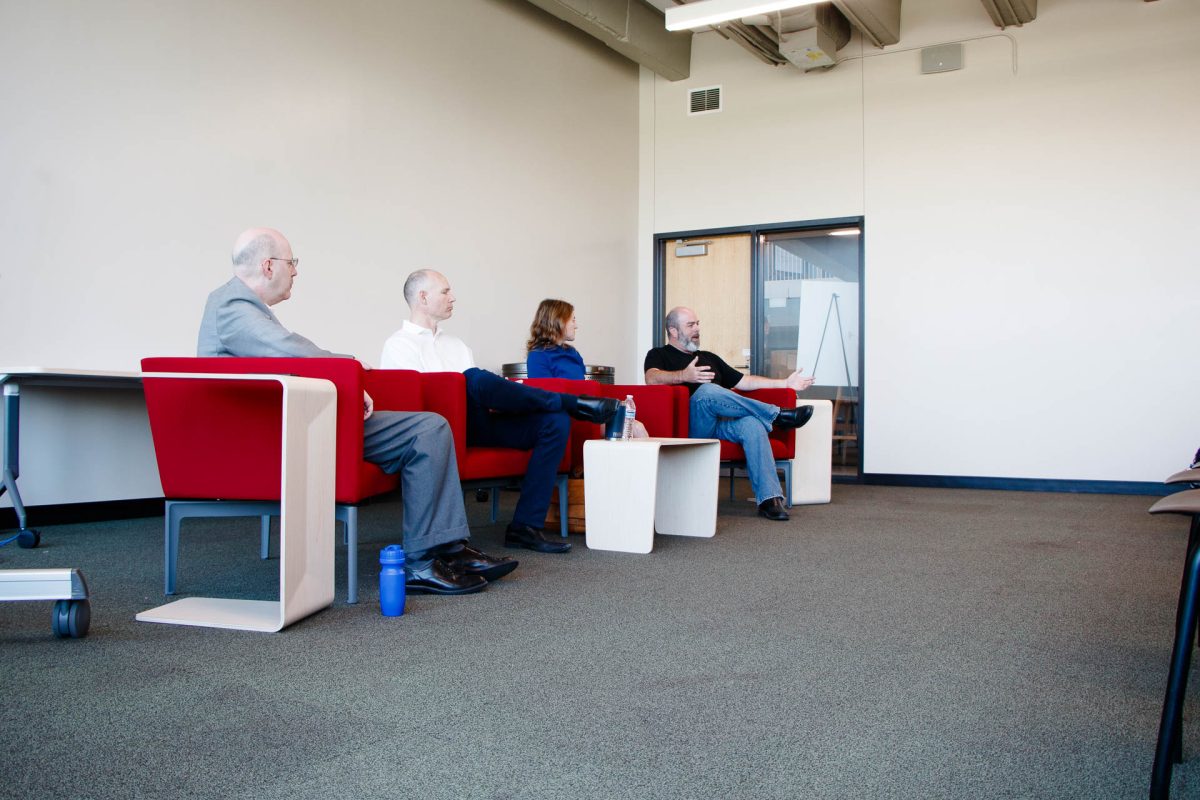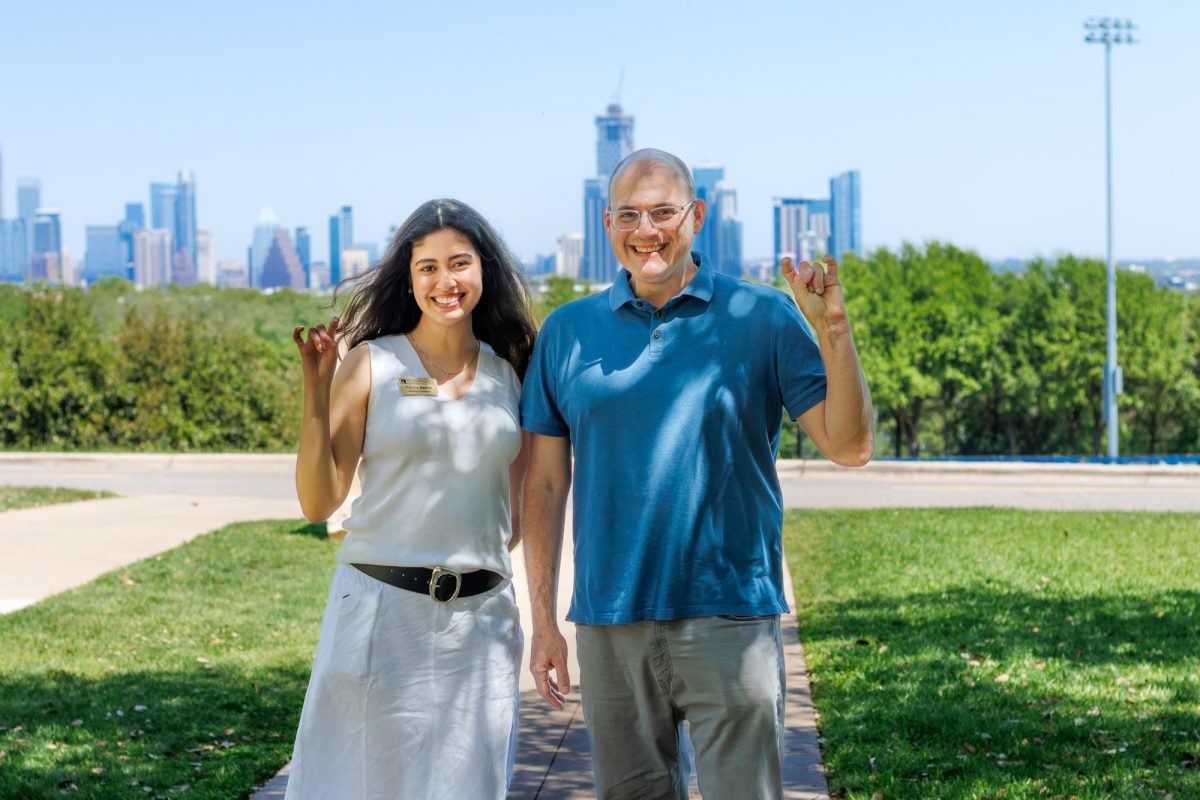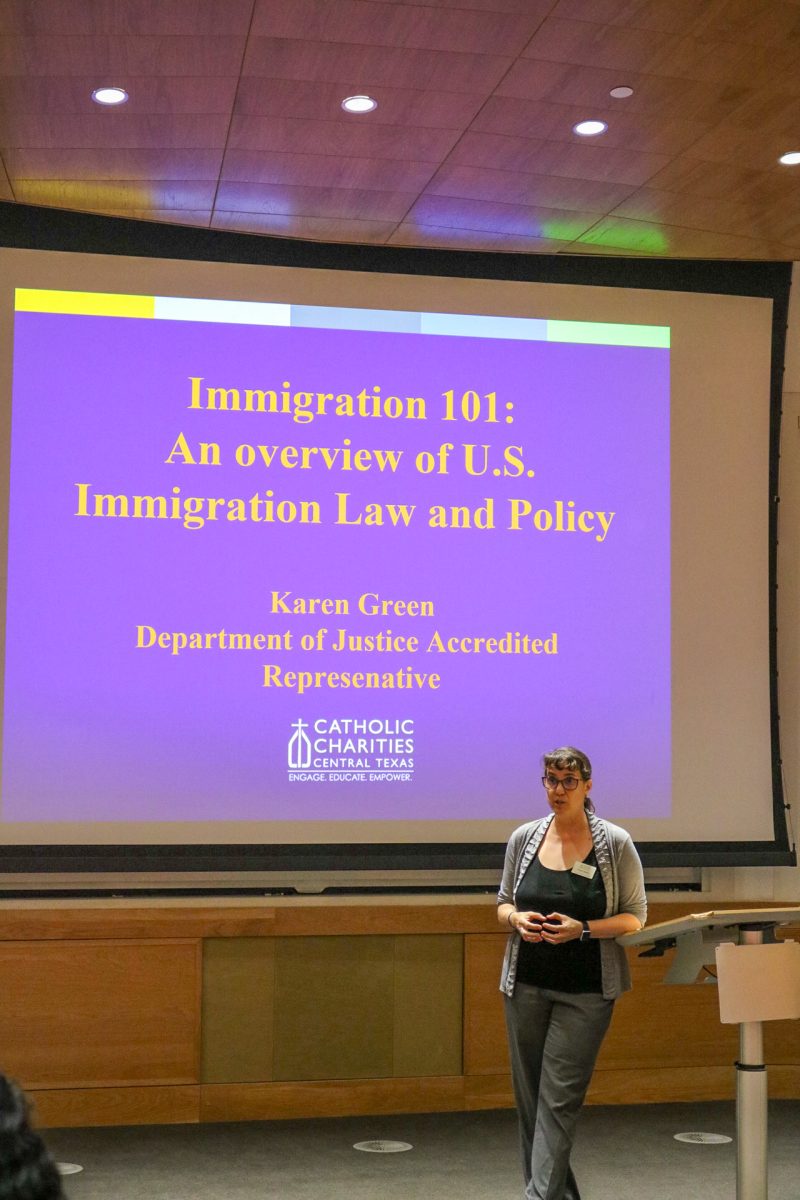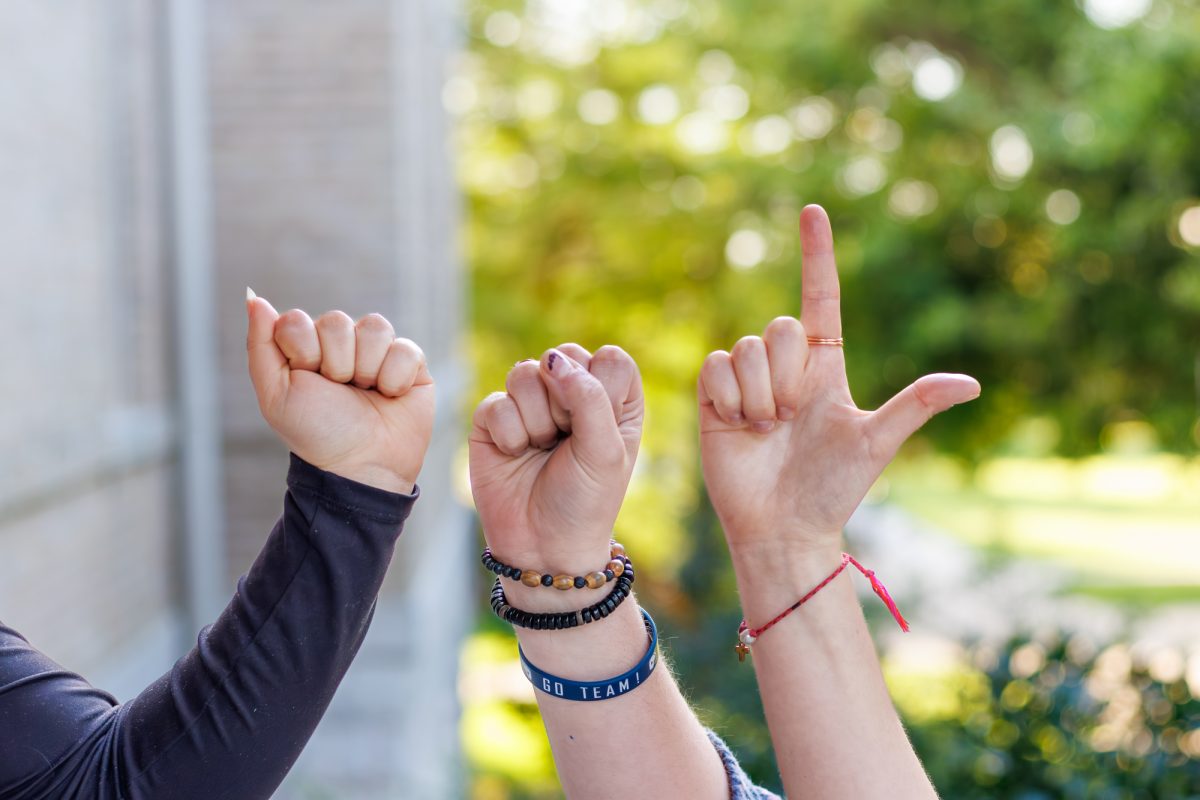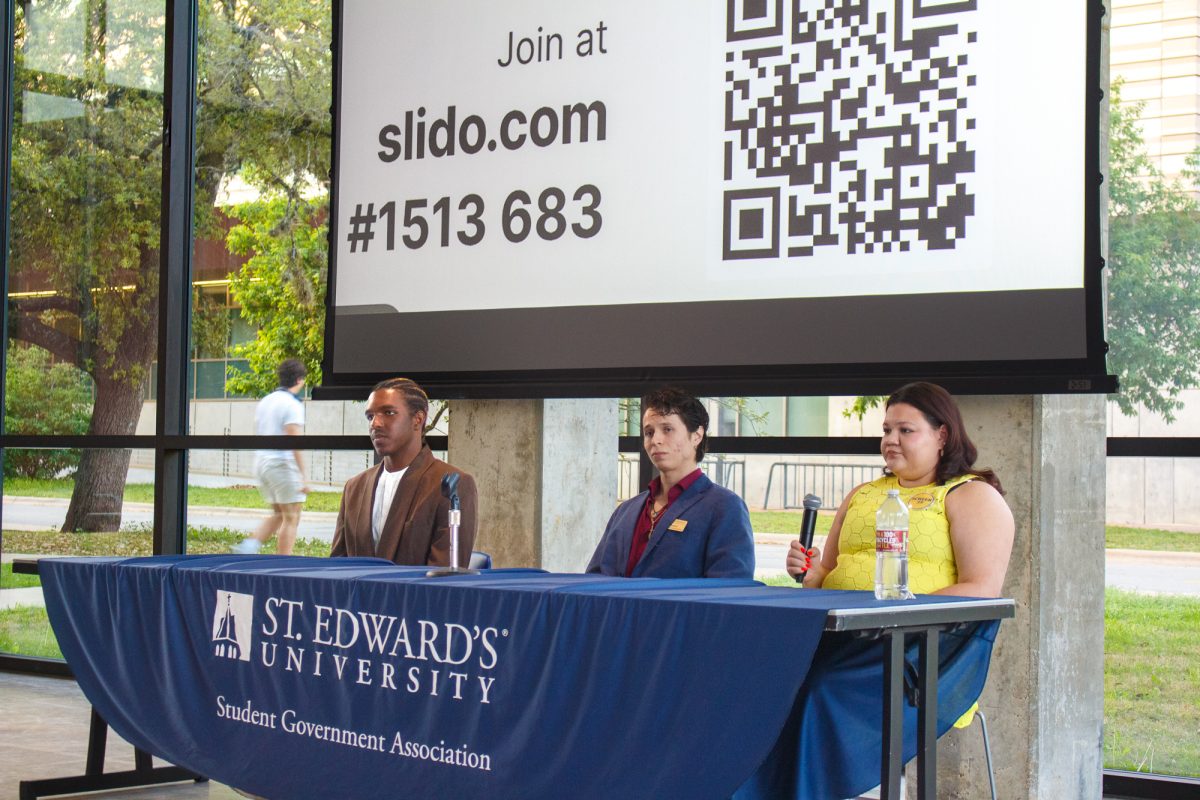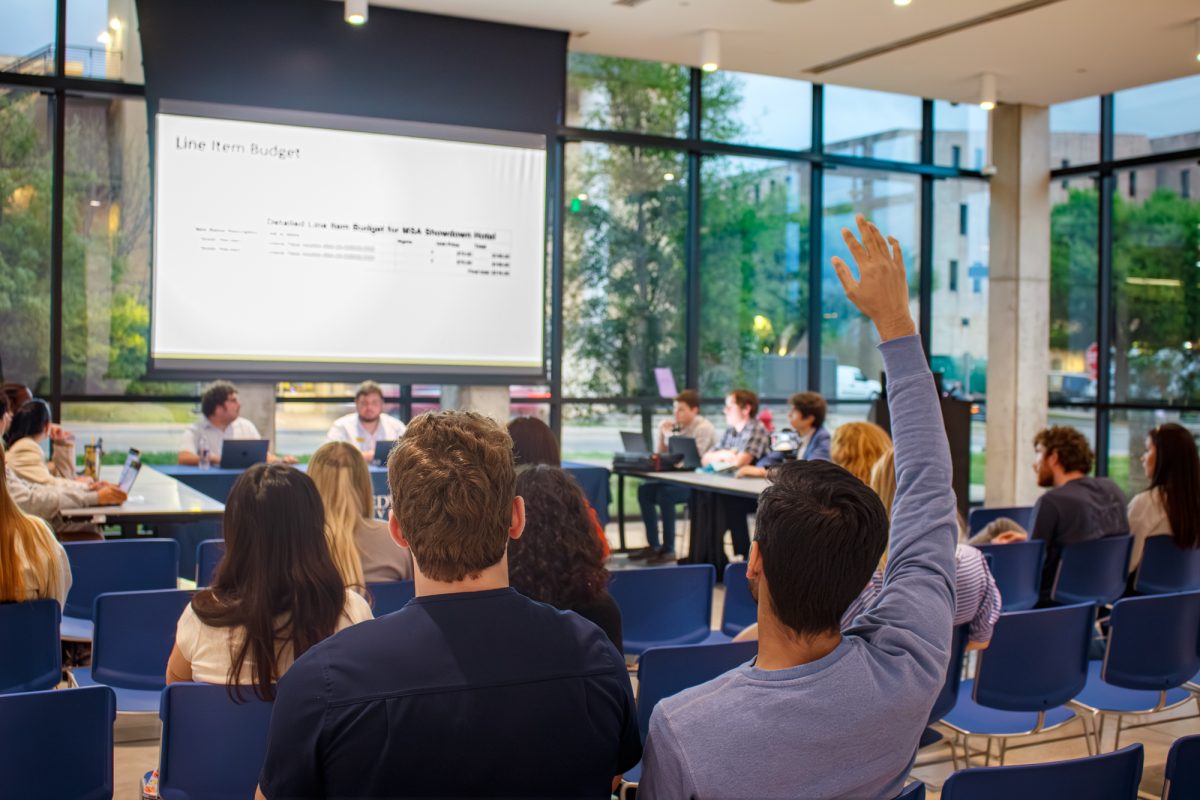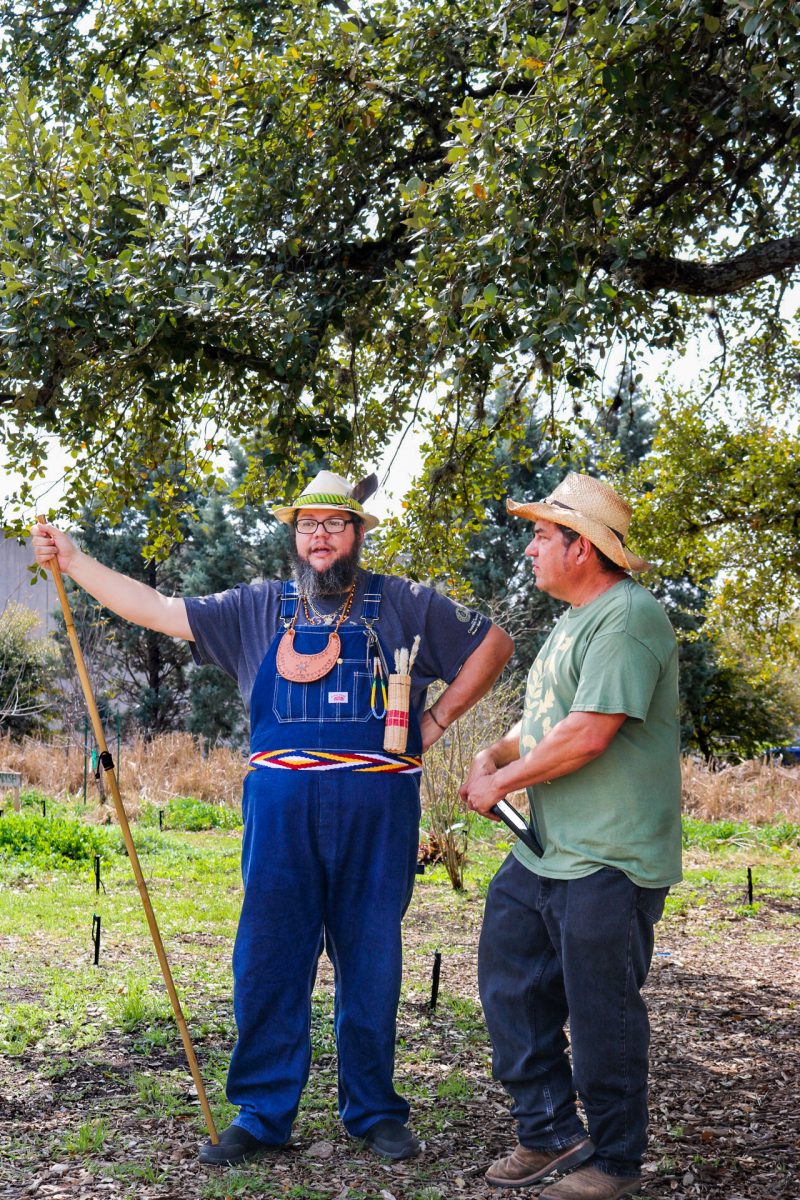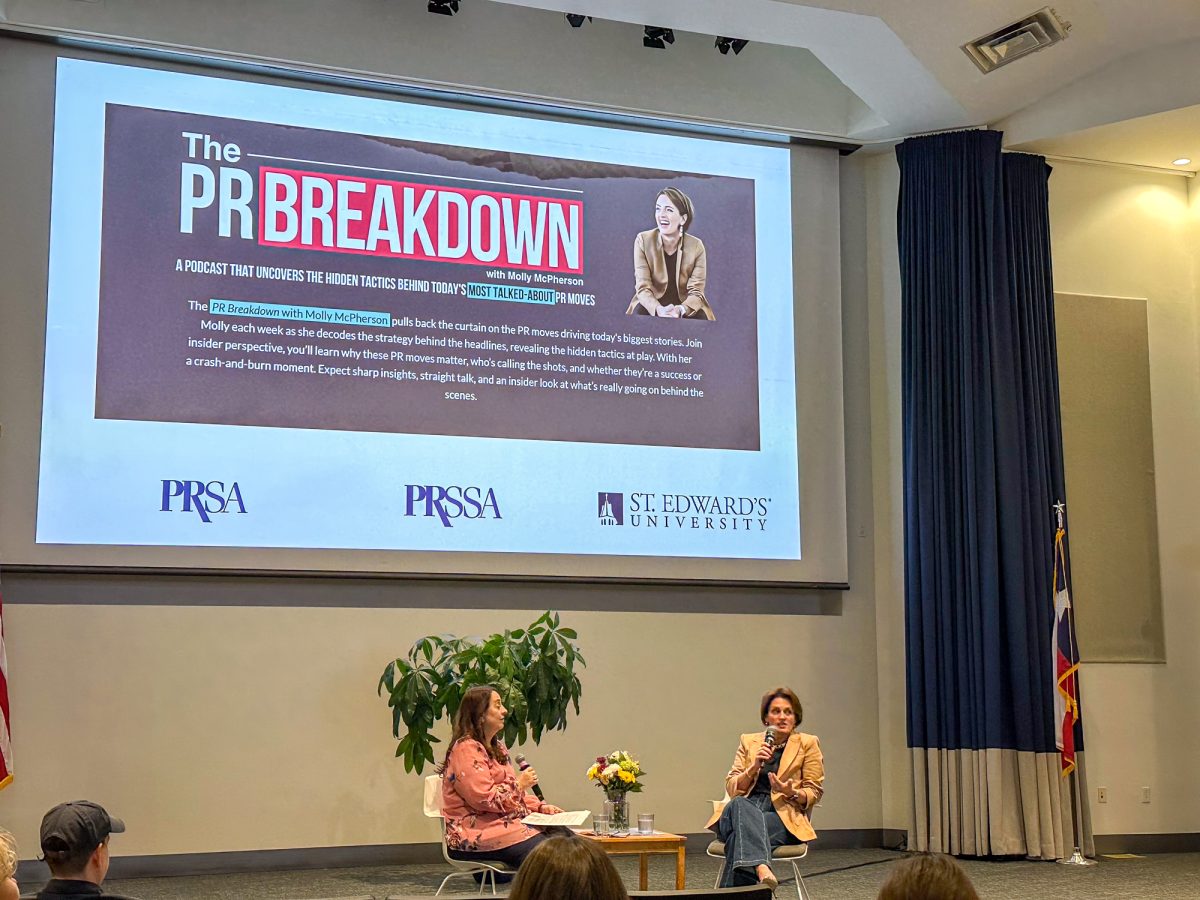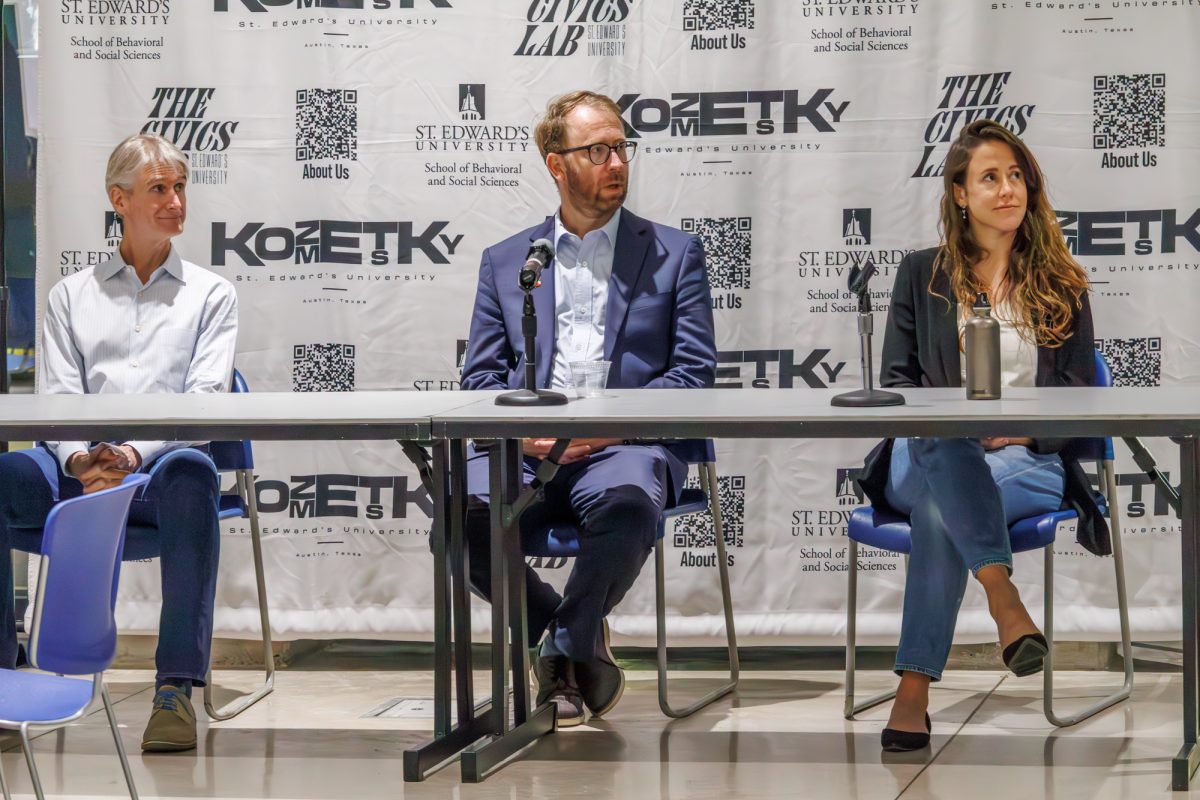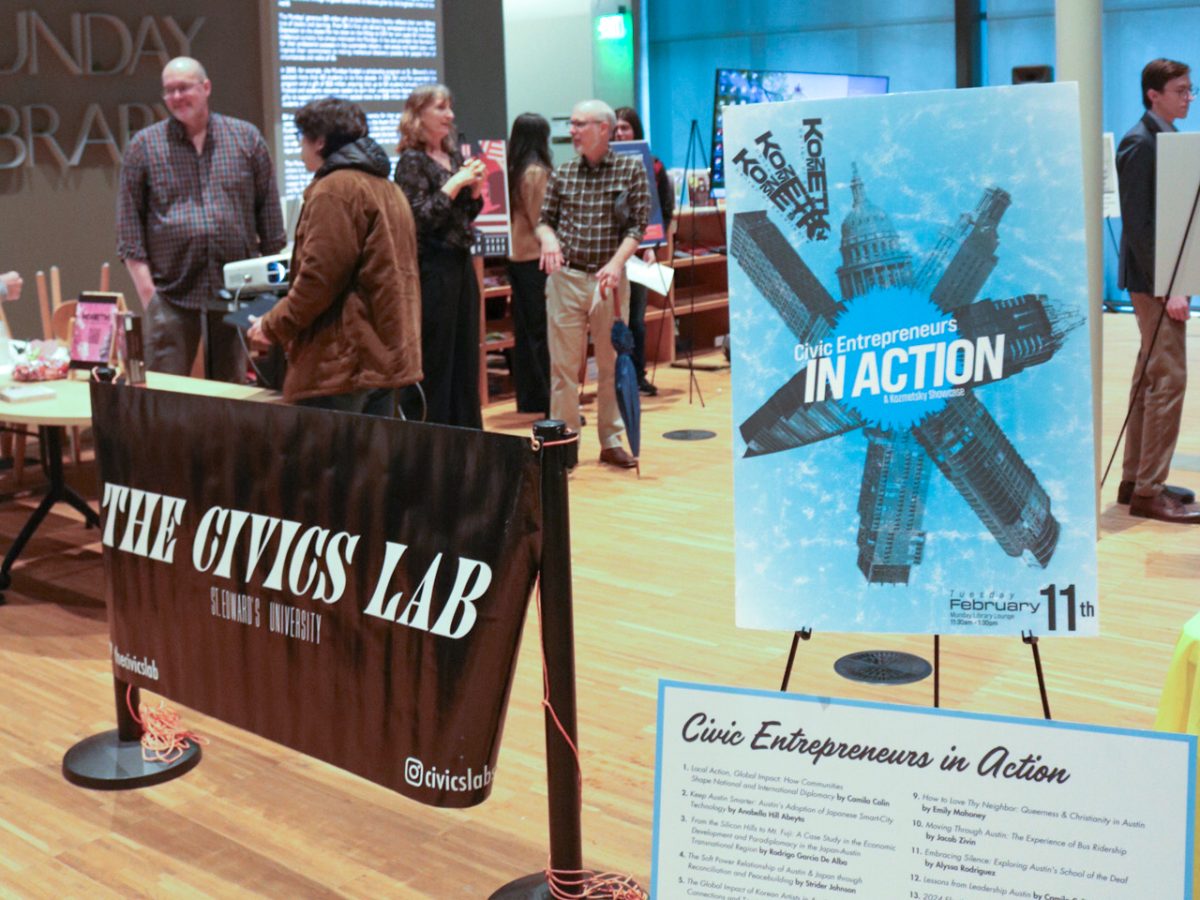“The 2024 Election: What’s At Stake” is the second event organized by the Kozmetsky Center and was hosted on Feb. 22 in Munday Library’s North Reading Room. St. Edward’s University’s Professor Nicholas Long mediated the event, which was a panel discussion for students to learn more about the 2024 primary election and included three guest speakers.
Brendan Steinhauser, the first guest speaker, is a political strategist and a partner with Steinhauser Strategy, an Austin public affairs firm. The second guest speaker, Amy Stansbury, is the Editor-in-Chief of The Austin Common, a journalistic organization that has a focus on local news. Jim Wick, a political consultant and the third guest speaker, was the campaign manager for former Austin mayor Steve Adler. Wick was also the lead organizer for MoveATX, a coalition of members of the Austin community that wish to see a better mobility future for the city of Austin.
“I loved the way that they wrote down what was on the ballot for those who didn’t understand, really what to expect,” Janice Jefferson, an environmental science and policy major, said. “Touching on issues that we feel are most important as college students.”
The speakers discussed a variety of topics from the strengths and weaknesses of the Democratic and Republican parties to whether or not the speakers see the United States moving away from the two party political system.
Professor Long opened the discussion up by asking what the strengths and weaknesses of the Democratic and Republican parties are. Steinhauser said the Democrats had the advantage of currently having a Democratic president in office who does not have as much controversy as the president prior to him. The current state of the economy is also a strength: inflation is not rising as much in comparison to previous years. However, the economy is also a weakness: the prices are not coming down.
Wick elaborated on the Republican side. Their strength is that Republicans fall in line with their party, so they are not divided as a party. An example of this that Wick gave was the war in the Middle East. Democrats are reportedly split on the issue. The main weakness of the Republican party is that their policies and views are unpopular, according to Wick.
“I mean, the biggest weakness for Republicans is that their policies are generally not popular,” Wick said. “And I think Republicans understand this, you know, a majority of Americans are pro choice. And yet you have a Republican majority on the Supreme Court that’s, you know, overturned Roe versus Wade, which is a very unpopular thing in the country, even amongst Republicans. It’s not a popular position.”
During the Q&A portion, a staff member from the administration office asked the speakers if they saw the United States moving away from the two party system. It was unanimously agreed that they do not see the country moving away from the current system.
The question of environmental policies was a topic that came up numerous times.
Stansbury elaborated on Austin’s plans for a more environmentally friendly future. This plan, the Austin Climate Equity Plan, was adopted in 2021, however it has yet to be put into effect and implemented. To kickstart the plan, Stansbury recommended community input, what should be prioritized within the plan, and she mentioned that there may be a bond in the November 2024 election in regards to doing more for the environment. This bond has yet to be finalized.
Steinshauser spoke on the importance of questioning local Congressmen on what they are doing as policymakers for the cause that the community wants to prioritize.
The speakers then elaborated on their activist journeys, which were key takeaways for students.
“I loved how honest they were about their activism journeys,” Jefferson said. “I think that’s what’s most important to me as a college student who’s trying to get involved.”


